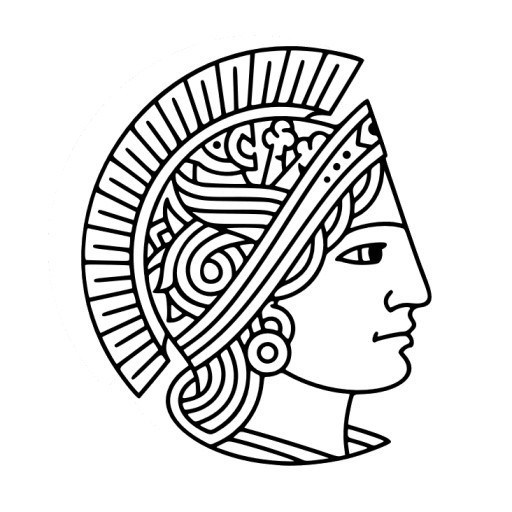Photos of university / #fu_berlin
The Master's program in Global Communication and International Journalism at Freie Universität Berlin is designed to prepare students for complex communication roles within an increasingly interconnected world. This interdisciplinary program provides a comprehensive understanding of global communication processes, media systems, and journalistic practices across different cultural and political contexts. Students will explore the theoretical foundations of communication, media, and journalism, alongside practical skills necessary for reporting, analyzing, and managing information in international settings.
Throughout the program, students engage with topics such as media globalization, digital communication, transnational journalism, media ethics, and the political economy of communication. They gain insights into diverse media landscapes, the role of journalism in democracy, and the challenges faced by media professionals in a rapidly evolving digital environment. The curriculum combines lectures, seminars, case studies, and practical projects to foster critical thinking, intercultural competence, and innovative problem-solving skills.
The program emphasizes experiential learning and international exchange, often incorporating collaborations with media outlets, internships, or research projects that provide real-world experience. Students are encouraged to develop their own media projects and conduct research on pressing global issues, such as human rights, social justice, environmental concerns, and conflict reporting.
Graduates of the program are equipped with the analytical tools and practical expertise to work in international media organizations, NGOs, governmental agencies, or as independent journalists. They are prepared to operate ethically and effectively in diverse cultural environments, contributing to informed global discourse and fostering intercultural understanding through responsible journalism and strategic communication.
The Master's in Global Communication and International Journalism at Freie Universität Berlin stands out for its vibrant academic environment, distinguished faculty, and strong emphasis on international perspectives. It aims to cultivate global citizens who are capable of shaping media and communication landscapes responsibly, ethically, and innovatively in the face of global challenges. The program typically has a duration of two years, and students from various backgrounds are encouraged to apply to benefit from its diverse academic community.
Core Areas of Research and Teaching
- Communication Studies and Research Methods
- Journalism Studies and Journalistic Practice
- Media Systems in Comparative Perspectives
- Globalization and Media
- International Journalism Culture
- Modern Media Management
- Internship / Research Practice
Application requirements
- A short letter of motivation for the double degree program (in English) containing 1) explanation of the applicant motives and expectations of the program; 2) details about the key aspects chosen in his/her previous study program(s); 3) relevant work experience in the fields of journalism, public relations and/or public communication.
- A CV
- An original or a certified copy of a bachelor diploma or of a diploma of a specialistwith higher professional education or a specialist’s diploma. An English language application in the format established by the admissions committee of SPbU.
- Professional-academic portfolio, including works in communication industries (max. 5 pieces); description of an existing (launched at least three months prior to the exam) media project owned/created by the applicant; prizes and awards owned by applicant at competitions in respective professional sphere can be also included in candidates’ professional-academic portfolio.
- Proof of English language skills: internet-based TOEFL with the result of 80 or better, equivalent IELTS with the result of 6 or higher, or Cambridge ESOL: FCE/CAE with the result of B2.2/C1.1 CEFR (Common European Framework of Reference for Languages) or higher.
- A copy of an identity document with the indication of applicant’s nationality (passport).
- A portrait photograph (300 dpi, made during the current calendar year).
Both universities offer up to 10 funded places for German / international students. For more information regarding places, please have a look at the SPbU website.
FU Berlin does not charge tuition fees for consecutive master’s programs. Instead, the university charges all students with “semester fees and contributions” of circa EUR 300 each semester, including public transportation costs in Berlin.
Students enrolled on the fee-paying basis pay tuition fees set by SPbU, which is fixed at the sum of 90.000 roubles per semester.
The Master’s program in Global Communication and International Journalism at the Free University of Berlin offers students an interdisciplinary and comprehensive education designed to prepare them for careers in international media, journalism, communication policy, and related fields. The program emphasizes critical understanding of global communication processes, media systems, and journalistic practices across different cultural and political contexts. Students explore theoretical foundations alongside practical skills, including investigative journalism, media analysis, digital communication, and reporting on international issues. The curriculum is tailored to address contemporary challenges in global media landscapes, such as media ethics, freedom of press, digital transformation, and the role of communication in international development and diplomacy.
The program enjoys a diverse international environment, welcoming students from various backgrounds and fostering cross-cultural dialogue. It collaborates with international media organizations, NGOs, and research institutions to provide students with practical internship opportunities and real-world experience. The faculty comprises experienced scholars and practitioners renowned in the fields of communication studies and journalism, ensuring that students receive quality education rooted in current research and industry developments. Graduates of the program are well-equipped to work in international news agencies, NGOs, governmental agencies, or pursue doctoral studies in related disciplines. The university’s strong network of alumni and professional contacts further supports career development. The program typically includes coursework, seminars, and a thesis project, encouraging independent research and critical thinking. Overall, the program aims to forge informed, ethically responsible media professionals capable of operating effectively within the complex, interconnected world of global communication.









